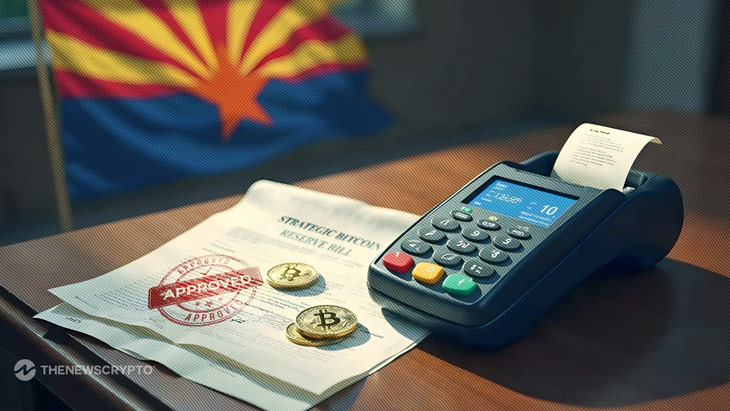[#title_feedzy_rewrite]
![[#title_feedzy_rewrite]](https://postcryptocoins.com/wp-content/uploads/2025/05/Arizona-Tweet-spnw6D.jpg)
Arizona is making history by becoming the first state in the U.S. to actively manage unclaimed cryptocurrency. Governor Katie Hobbs recently signed House Bill 2749 into law, allowing the state to take ownership of digital assets that have been abandoned for at least three years. This new legislation paves the

- Arizona became the first state to hold unclaimed digital assets, like Bitcoin, in their original form under House Bill 2749.
- The state creates a Bitcoin Reserve Fund to collect airdrops and staking rewards from unclaimed crypto.
Arizona is making history by becoming the first state in the U.S. to actively manage unclaimed cryptocurrency. Governor Katie Hobbs recently signed House Bill 2749 into law, allowing the state to take ownership of digital assets that have been abandoned for at least three years.
This new legislation paves the way for Arizona to securely hold cryptocurrencies, such as Bitcoin, in their original form, rather than liquidating them. By doing so, the state positions itself as a trailblazer in the emerging world of digital asset regulation.
A key part of the bill is the creation of a “Bitcoin Reserve Fund.” The fund will hold any unclaimed crypto, including any staking rewards or airdrops that the state might receive from these digital assets. These rewards will be added to the fund and could be used for future state expenditures, providing a way for Arizona to benefit from unclaimed assets without using taxpayer money.
Rep. Jeff Weninger, who sponsored the bill, emphasized that this new approach helps Arizona avoid wasting valuable digital assets and puts the state at the forefront of managing the future of digital currency.
He said:
“This law ensures Arizona doesn’t leave value sitting on the table and positions us to lead in how we secure, manage, and ultimately benefit from abandoned digital currency.”
A Step Toward Digital Asset Innovation
Arizona’s approach to unclaimed crypto is unique because, unlike other financial assets, crypto can now be held in its native form, rather than being liquidated or converted to cash. This is a huge shift in how the state views digital assets, acknowledging their potential value and ensuring they’re properly managed for the future.
Though similar bills have faced resistance in other states, Arizona is blazing a trail with this law, reflecting a broader trend in the U.S. towards integrating digital assets into public finance. The bill passed with bipartisan support, indicating that lawmakers on both sides of the aisle see the potential for this to benefit the state.
What’s Next for Arizona’s Crypto Future?
This legislation doesn’t end with HB 2749. Arizona lawmakers have also proposed two additional bills that could significantly impact how the state deals with cryptocurrency. Senate Bill 1025, for example, would allow Arizona to invest up to 10% of public funds into Bitcoin. Meanwhile, Senate Bill 1373 looks at creating a Digital Assets Reserve Fund, a long-term strategic approach to managing digital assets, including any that are seized in criminal investigations.
Governor Hobbs is yet to sign these bills, and there’s a lot of debate over whether they’ll pass, given some concerns about the potential risks associated with cryptocurrency investment. But the signing of HB 2749 shows that Arizona is committed to staying ahead of the curve when it comes to digital asset regulation.
Highlighted Crypto News for Today
Dogecoin Faces Medium-Term Pressure as Analysts Present Conflicting Outlooks

